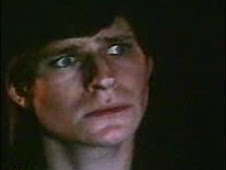 Kill Your Idols is a bizarre documentary. The first half is dedicated to the famed No Wave period of downtown New York rock and roll, a scene and sound that flourished in the late 70s/early 80s. Highly influenced by the anarchic edges of the glam rock movement and the stripped down attitude of groups like Suicide, the bands associated with No Wave practiced a form of highly individualized and at times minimalist art bordering on performance art. None of the musical ensembles of this era lasted very long nor achieved any sort of national fame but for a certain segment of the musical populace their legacy is enormous. Watching bands like DNA, Mars and Teenage Jesus and the Jerks skronking it out in dingy clubs and deconstructing music was fascinating and leaves no question as to why commercial success was not in their future.
Kill Your Idols is a bizarre documentary. The first half is dedicated to the famed No Wave period of downtown New York rock and roll, a scene and sound that flourished in the late 70s/early 80s. Highly influenced by the anarchic edges of the glam rock movement and the stripped down attitude of groups like Suicide, the bands associated with No Wave practiced a form of highly individualized and at times minimalist art bordering on performance art. None of the musical ensembles of this era lasted very long nor achieved any sort of national fame but for a certain segment of the musical populace their legacy is enormous. Watching bands like DNA, Mars and Teenage Jesus and the Jerks skronking it out in dingy clubs and deconstructing music was fascinating and leaves no question as to why commercial success was not in their future.Nor was it anything these bands were hoping for. They were all creating "Art" and not simply angling for multi-record deals or opening slots on the upcoming John Cougar tour. So why did the second half of this documentary so awkwardly try to compare and contrast the No Wave era of anti-commercial exploration with the early 2000s Brooklyn boom of dancepunk bands like Liars, Yeah Yeah Yeahs and Gogol Bordello? They have nothing to do with each other. The only possible link is Sonic Youth who bridge the gap between the two but don't fall squarely in either camp.
Yeah, it was a bit weird. What was the point of this movie? What inspired the filmmaker to compare bands that aimed to dismantle musical forms and barely made waves outside of their cloistered huddle in the 19070s to groups playing highly accessible modern disco in the new millennium garnering reams of press before they even put out proper albums?
Maybe he had some sort of grudge against these bands getting attention for nothing while the real artists who toiled in obscurity have disappeared in the dusty tomes of music history. Lydia Lunch, who is as self righteous and annoying as you'd imagine, certainly was happy to jump on these modern bands for not pushing the boundaries of music far enough. She, who was in a band featuring guitar, bass and drums during the No Wave period, goes on and on about how she's so bored with guitars, bass and drums and actually asks "where are the bands with tubas" with a straight face. I just had no idea what the point of this film was and as interesting as the clips and interviews were, I still give it a 2.
I was impressed by how fun Glenn Branca seemed and was relieved to see how open-minded Thurston and Lee were with regards to the young upstarts. Certainly, the 20 year old Karen O, still reeling from the whirlwind of attention she was swept up in, was not as thoughtful and coherent as the interviewees from the No Wave period, but then again she wasn't able to benefit from 20+ years of experience and reflection. On a scale of Arto Lindsay to the two meatheads from A.R.E. Weapons, I give this confused and confusing documentary an Aaron Hemphill.


.jpg)






No comments:
Post a Comment